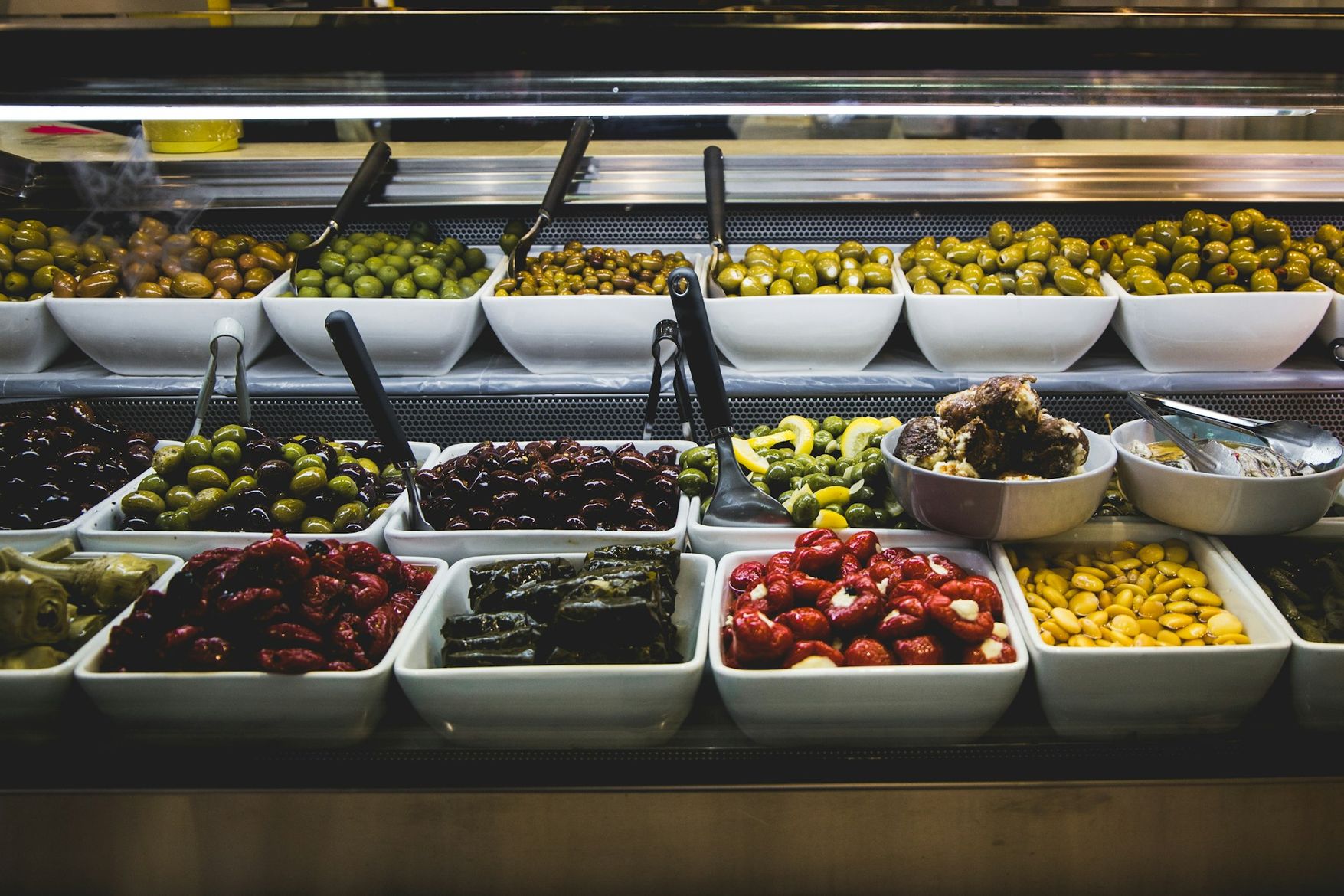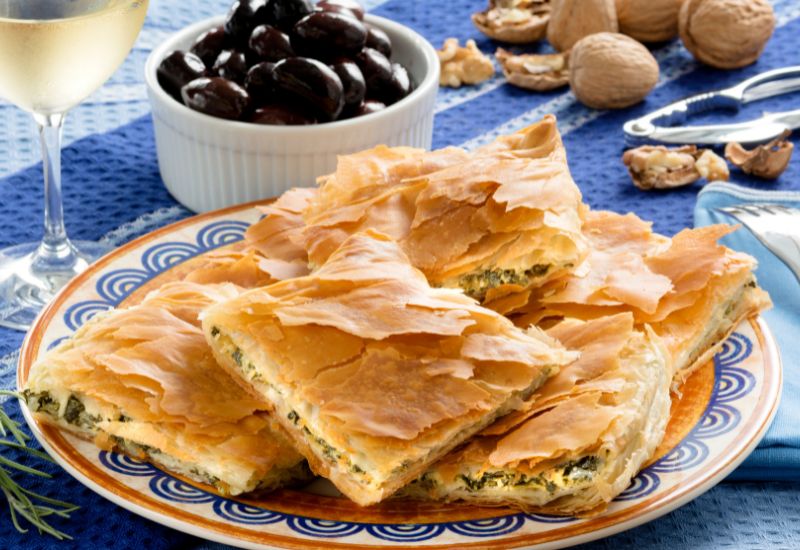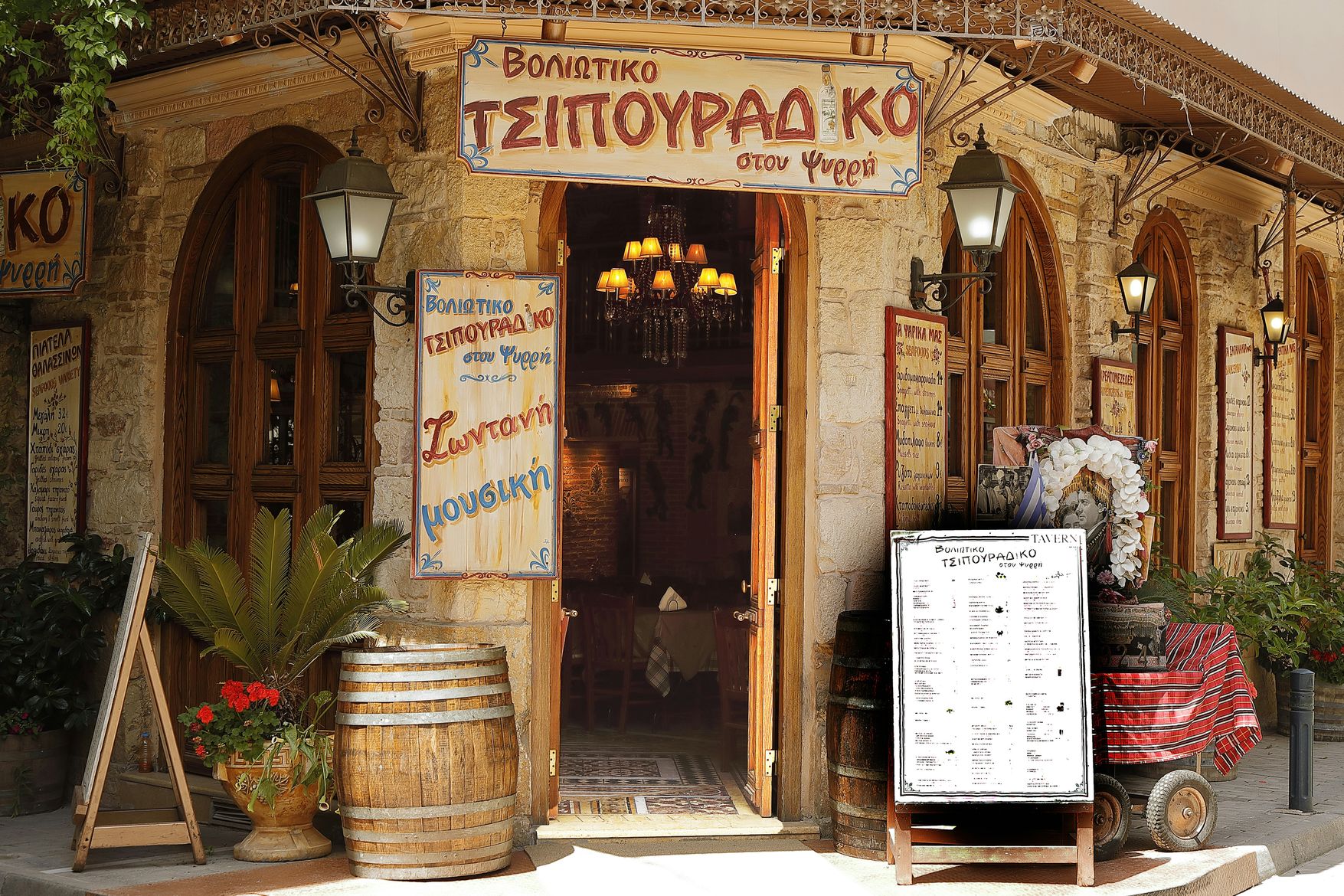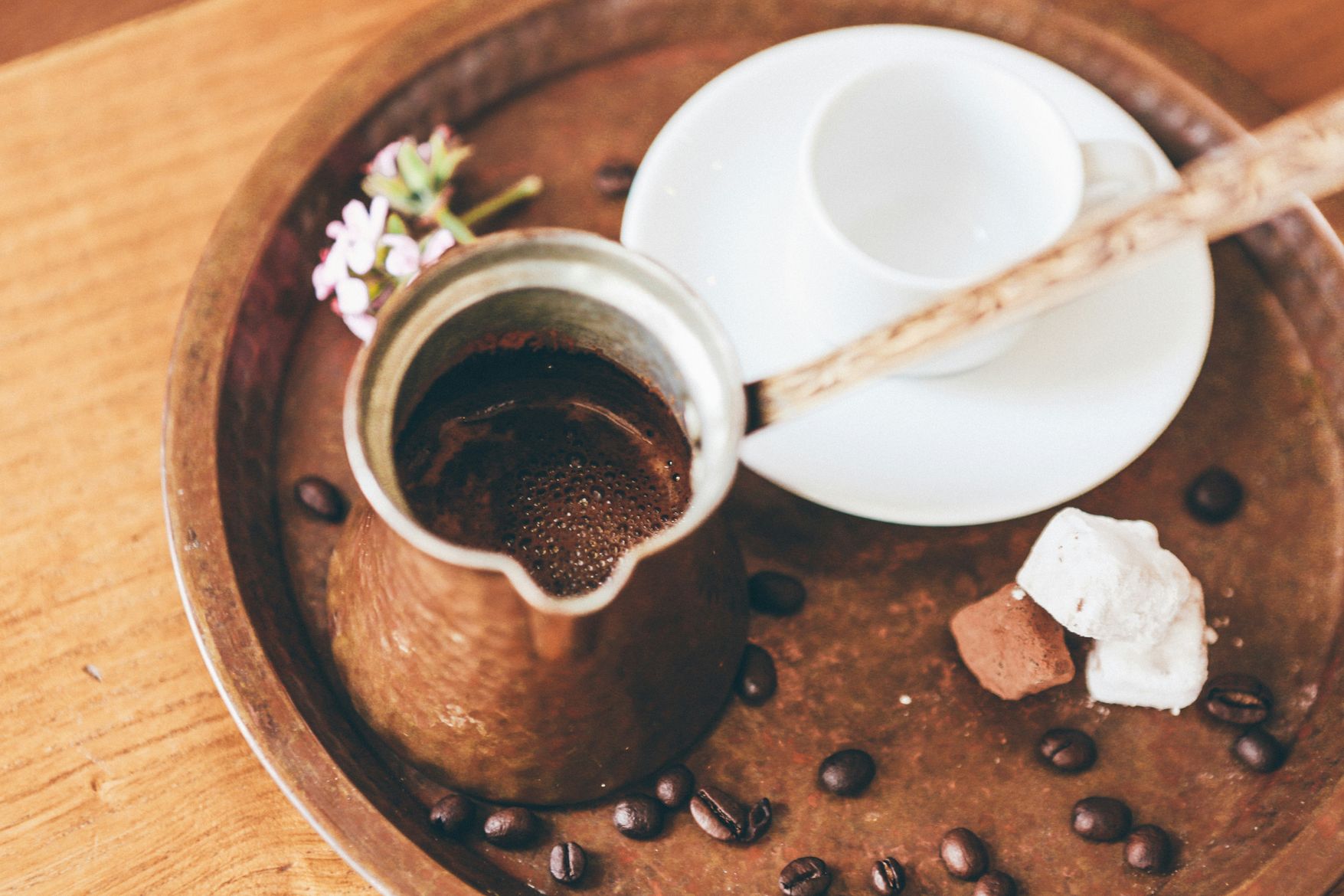Culture in Greece
Cultural highlights in Greece
Greece, known as the "cradle of civilization," captivates with its rich culture and tradition. In addition to the architectural highlights of antiquity, the heart of modern Greek culture is shaped by its cuisine, and festivals and customs deeply rooted in history and mythology.
From aromatic olive oils and fresh seafood to hearty meat dishes and sweet delicacies, Greek cuisine reflects the essence of the Mediterranean. This cultural mosaic is complemented by colorful festivals and traditions that reveal both the ancient roots and the influence of the Christian faith.
In Greece, one experiences a vibrant culture that manifests in every bite and every festive day.
Greek cuisine
Greek cuisine is known for its fresh ingredients, abundant use of olive oil, and aromatic herbs. It is characterized by simple preparations that emphasize healthy, Mediterranean diets and the sense of community at meals. This approach offers a diverse palette of flavors.
5 typical dishes from Greece
Greek cuisine is renowned for its delicious and diverse dishes. These dishes reflect the rich culinary tradition of Greece and are popular among locals and tourists alike.
1. Gyros
Gyros is a popular Greek dish consisting of thinly sliced, spicily marinated meat that is grilled on a vertical rotisserie. Traditionally, it is made with pork, but variations with chicken or lamb are also common.
Gyros can be served in various ways, such as a main dish with fries, tzatziki, and coleslaw, or wrapped in warm pita bread, accompanied by fresh onions, tomatoes, and sauce.
2. Tsatsiki

Tzatziki is a refreshing Greek sauce traditionally made from yogurt, grated cucumbers, garlic, olive oil, and a hint of lemon juice or vinegar. It can also be seasoned with dill or mint.
Tzatziki is traditionally served as an appetizer with bread but also serves as a versatile side dish. For example, it pairs perfectly with grilled meats like souvlaki or gyros. It can also be used as a dip for vegetables or as a flavor enhancer in pita wraps. The creamy consistency and cool, slightly tangy taste make tzatziki a favorite in Mediterranean cuisine.
3. Souvlaki

Souvlaki is a popular Greek dish consisting of small pieces of meat skewered and grilled. The meat for souvlaki is marinated in a mixture of olive oil, lemon juice, and spices. Typically, pork is used, but chicken or lamb can also be used for souvlaki.
Souvlaki is often served with pita bread, fresh vegetables, tzatziki, and French fries, making it a tasty and popular street food.
4. Dolmadakia

Dolmadakia, often simply known as dolmas, are tender grape leaves carefully wrapped around an aromatic filling of rice, herbs, and spices. These small parcels are steamed or cooked and often served with a splash of lemon juice.
They are a popular appetizer or side dish in Mediterranean and Middle Eastern cuisine and are enjoyed both warm and cold. The Greek version of the dish is characterized by being typically prepared without meat.
5. Spanakopita

Spanakopita is a savory Greek pastry filled with a lush mixture of spinach, feta cheese, onions, and herbs, wrapped in crispy phyllo or filo dough. This traditional dish is distinguished by its layered texture and delicate yet savory flavor. Spanakopita is often served as an appetizer or snack and is a popular delight at Greek festivals as well as in everyday life.
Drinks
Greek drinking culture emphasizes communal gathering and enjoyment, whether in a taverna, at a festival, or simply at home. It's not just about the consumption of beverages but also about coming together, sharing stories, and savoring the moment.
Spirits

The most famous Greek drink is likely Ouzo. This clear, anise-flavored liqueur is often served as an aperitif and traditionally diluted with water and ice, which turns it a milky color.
The clear spirits Tsipouro and Raki are similar to Ouzo but without the anise flavor. Tsipouro is often enjoyed after meals, sometimes accompanied by small snacks or mezedes.
Greek coffee

Similar to Mocha, Greek coffee is brewed in a small pot called a briki. It is known for its strong flavor and thick sediment at the bottom of the cup.
A popular cold coffee variation in Greece is the Frappé. It is made from instant coffee, water, and sugar, and shaken to create a frothy top.
Greek mountain tea

Even those who don't like coffee don't have to miss out on regional hot beverages in Greece. Known as "Tsai tou vounou," Greek Mountain Tea is an herbal tea made from various plants found in the Greek mountain regions. Depending on the different herbs that grow in a region, various local varieties of Greek Mountain Tea are common. All of them are popular for their aromatic flavor and health benefits, such as aiding with colds or digestive problems.
Traditional festivals and customs
Greek festivals and customs reflect the deep roots of Greek culture in its history, religion, and community. In Greece, name days are often more important than birthdays. Anyone named after a saint celebrates their name day on that saint's feast day. Traditionally, people invite friends and family to their home on this day.
Panigiri

Panigiri is also, in a broad sense, a form of name day celebration. It is a traditional village festival held in honor of a church's patron saint on their feast day. These festivals often take place in the summer and include traditional music, dance, food, and drink.
Easter festival (Pascha)

The Greek Easter celebration is the most significant festival in the religious calendar of Greece. It is observed with numerous customs, such as dyeing eggs, baking Tsoureki (Easter bread), and the midnight mass on Holy Saturday. On Easter Sunday, there are large family meals, traditionally featuring roasted lamb.
Epiphany (Theophany)

The Epiphany or Theophany festival on January 6th commemorates the baptism of Jesus Christ. A highlight is the ritual throwing of a cross into the water and the competitive diving of young men to retrieve it. The one who finds the cross is said to have good luck for the coming year.
Carnival (Apokries)

Carnival in Greece is a joyful time with parades, costumes, and celebrations. The city of Patras hosts the largest and most famous carnival in Greece, celebrated with colorful processions and parties.
Experience Greece authentically
In Greek culture, characterized by hospitality and zest for life, there is a deep connection to the past. From the rich culinary tradition to the vibrant festivals and customs, every aspect of Greek culture invites you to experience and celebrate the heritage and spirit of Greece.
Are you ready to explore new cultural experiences in Greece?
Here you can learn more about toll regulations in Greece, so you can travel stress-free throughout the country.
